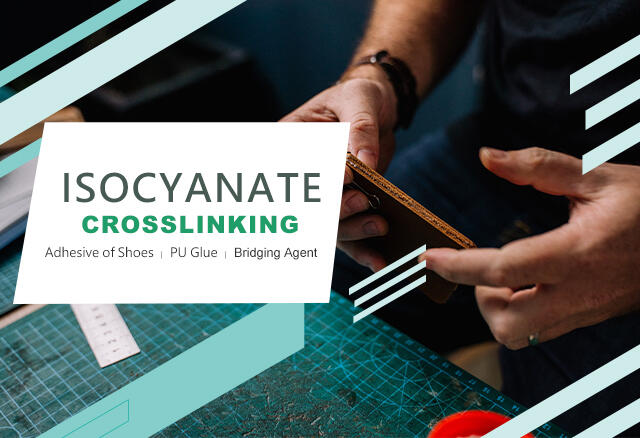HARTDUR E333 (RFE)
| Common Name | RFE; TPTI |
| Substance Name | Tris(4-isocyanatophenyl) thiophosphate; thiophosphoric-tris-(p-isocyanato-phenyl ester) |
| Molecular Formula | C21H12N3O6PS |
| CAS Number | 4151-51-3 |
HARTDUR E333 (RFE / TPTI) is an established, universal cross-linker for adhesives based on hydroxyl polyurethane, natural, and synthetic rubber. HARTDUR E333 possesses excellent heat and solvent resistance, and it is particularly effective during the bonding of rubber products, especially when a light color appearance is a strict requirement.
Package
0.75 kg/aluminum bottle; 20 bottles/carton (15 kg/carton).
180 kg/iron drum.
It can be packaged on demand. Please inquire.
USAGE NOTICE
HARTDUR E333 is a low-toxicity and eco-friendly two-component adhesive. Adding a certain ratio HARTDUR E333 into the adhesive, these mixed adhesives must be used within the pot life (operational period). With different ingredients, the pot life varies accordingly. When missing the operating period, usually delayed by a few hours or one working day, the mixed adhesive will become very thick and viscous quickly. Thus, it is no longer to be used.
RECOMMENDED DOSAGE
Depending on the bonding process and substrates, the most suitable dosage is recommended for a wide range of options.
For curing adhesive of 100 parts by weight (p.b.w.) based on:
Graft-Chloroprene rubber (rubber content approx. 16%): 3%-5% p.b.w. HARTDUR E333
Chloroprene rubber (rubber content approx. 20%): 5%-7% p.b.w. HARTDUR E333
Hydroxyl polyurethane (polyurethane content approx. 15%): 3%-5% p.b.w. HARTDUR E333
Compatibility with solvents
HARTDUR E333 can be diluted with anhydrous and alcohol-free ethyl acetate dichloropropane, trichloroethylene, acetone, methyl ethyl ketone, toluene and other solvents. Adding relatively large proportions of aliphatic hydrocarbons can result in turbidity. However, the solution of aliphatic hydrocarbons in natural rubber(NR) shows good compatibility with HARTDUR E333. Thus, there is no need to add other solvents.
Chemical Name | Tris(4-isocyanatophenyl) thiophosphate; thiophosphoric-tris-(p-isocyanato-phenyl ester) |
CAS No. | 4151-51-3 |
Appearance | Clear light yellowish liquid |
NCO Content (%) | 7.2 ± 0.2 |
Viscosity (cps, @20°C) | approx. 10 sec flow time |
Solid Content (%) | 27.00 ± 1.0 |
| Solvent
| Ethyl acetate |
Package | 0.75 kg/bottle (20 bottles/carton) & 180 kgs/metal drum |
Self Life | 6 months since production date. |
- Crosslinking agent (e.g. polyurethane, chloroprene rubber…)
- Adhesive for shoes
- Adhesion promoter


